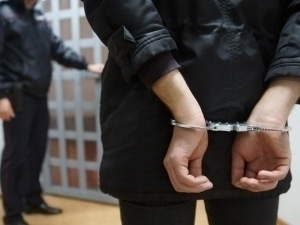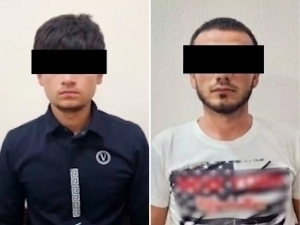Can you record videos of yourself—or others? A look at the controversial law in Uzbekistan
Review
−
28 January 2025 14255 13 minutes
The right to record videos, especially of public officials, has been a subject of intense debate in Uzbekistan. The issue gained widespread attention when a proposed amendment sought to impose fines and jail time for filming law enforcement officers while on duty.
The implications of such a law depend largely on who is being recorded and who is in charge. If a Ministry of Internal Affairs (MIA) officer were filmed while working and claimed that the footage was meant to discredit them, the person behind the camera could face serious legal consequences. On the other hand, if a teacher or a doctor were deliberately defamed through recorded footage, legal action would likely be taken against the person responsible.
In 2023, the Ministry of Internal Affairs submitted a draft law to the Legislative Chamber of the Oliy Majlis titled:
“On Amendments and Supplements to the Criminal Code, Criminal Procedure Code, and the Code of Administrative Responsibility in Connection with the Improvement of the Road Safety System.”
One of the most contentious provisions, Article 195-2, proposed that filming or photographing law enforcement officers while on duty and posting the footage online with the intent to insult or discredit them could lead to:
- A fine of 50 times the basic calculation amount (equivalent to 18.75 million sums)
- Up to 15 days in prison
As soon as the draft law was introduced in parliament, it faced strong opposition from both the public and lawmakers. In the Legislative Chamber, deputies Doniyor Ganiyev and Umidjon Jabbarov were among those who voiced their objections to the amendment, arguing that it could restrict freedom of speech and public accountability.
The bill’s approval by deputies and submission to the Senate led to sharp public discontent, sparking a national conversation on the balance between security and transparency.
So, was the controversial article ultimately removed or retained? Stay with us as we take a closer look at the latest developments.
"I believe that the openness and transparency that our esteemed President has been pursuing in recent years stands in contrast to the noble policy that state agencies should serve the people, not the other way around, and that public control must be ensured. Moreover, this directly contradicts our laws ‘On Internal Affairs Bodies’ and ‘On the Openness of the Activities of State Power and Administration Bodies.’ Our Constitution also guarantees freedom of information, and these principles must be taken into account. The most concerning issue is that if this norm comes into force tomorrow, there will inevitably be employees who abuse their positions, violating the rights and freedoms of citizens. There is a real risk that this norm will be misused, allowing certain individuals to justify their misconduct and mistreatment of citizens under its protection. Some may believe that this measure will improve discipline and morale among internal affairs officers. No—it will have the opposite effect. What we seek today is for the employees of internal affairs bodies to become a true support, a trusted friend, and a defender of citizens. But norms like this will not foster respect; instead, they will replace it with fear, turn trust into suspicion, and transform goodwill into resentment. That is why we must approach this matter with the utmost caution. I urge our deputies to fully understand the essence of this norm and its consequences when casting their votes," says deputy Doniyor Ganiyev.
"I was completely against this article even during the conceptual discussion of the law. There were discussions yesterday, and today I reconsidered the article. But one question remains: when it comes to law enforcement agencies, we know there are five or six structures. If we focus on the name of the law, it is about improving the traffic system. Logically, the scope of the article does not seem to fit. It concerns law enforcement agencies... and the term 'traffic' is not even mentioned in the article. We could consider that there is a section within law enforcement agencies that handles traffic, but the interpretation seems to take on a different meaning: 'photos and videos taken in the course of performing official duties with the aim of discrediting or insulting them.'
How can the intent behind such actions be determined? The person taking the picture could argue in court, 'I was taking it with good intentions.'
Additionally, there is a presidential decree ('On the State Program for the Implementation of the Development Strategy of New Uzbekistan for 2022-2026 in the “Year of Attention to the Human Being and Quality Education”') that approves the concept of public safety. This issue is addressed within the concept, and its implementation will follow. But the term 'insult' does not appear in this document—it refers to 'defamation.' Based on this, I propose removing the word 'insult,'" says MP Umidjon Jabborov.
Despite the opposition from several deputies at the meeting, the draft was approved and sent to the Senate of the Oliy Majlis. During a meeting held in January 2024 before the plenary session of the Senate, the amendment was defended by the senator from the Internal Affairs system and chairman of the Senate Committee on Defense and Security, Kutbiddin Burhonov, who supported Article 195-2 of the amendment.
"For example, in the UK, a norm prohibiting the filming of law enforcement officers while they are performing their official duties on the streets or in their buildings without their consent was approved by the country's parliament in 2000. According to this norm, a person who films or attempts to film a law enforcement officer performing his official duties without consent using a camera, video camera, or mobile phone may be arrested and imprisoned for up to 10 years.
In Germany, it is not forbidden to photograph police officers, but it is forbidden to post these photos or videos on social networks and the Internet.
In France, distributing images that help identify police officers or gendarmes during an operation is punishable by one year in prison and a fine of 45,000 euros,” he explains.
Initiating a discussion on the issue, Farhod Bokiyev, Deputy Chairman of the Senate Committee on Information Policy and Transparency in State Bodies in 2024, recalled that penalties for these violations are already outlined in current laws, including the Criminal Code and the Code of Administrative Responsibility.
“The preamble to the Constitution states that a person, his life, honor, and dignity are the highest value, meaning that we recognize our responsibility to build a humane democratic state and an open and just society. Article 195-2 specifically addresses this issue, and Article 202-2 of the Code of Administrative Responsibility addresses the dissemination of false information. Article 244-6 of the Criminal Code addresses the dissemination of false information. If the ministry had analyzed how many videos discrediting internal affairs officers were distributed on social networks, how many of them were justified by citizens, and how many by internal affairs officers, we would have a clearer understanding,” says Bokiyev.
The session repeatedly emphasized that this article would apply to citizens only if they distributed material with the aim of discrediting a traffic police officer. However, when a journalist inquired about the criteria to define "discrediting" in this case, the response was as follows:
"The prosecutor's office has 100 percent authority to take action against such individuals. The prosecutor's office will assess this legally," said Burhonov.
At that time, lawyer Khushnudbek Khudoyberdiev pointed out that the content of the Senate meeting appeared more focused on protecting the law, emphasizing its correctness, and making it difficult for journalists and bloggers to ask questions.
"There are journalists and bloggers who asked questions, and almost all of them were met with a harsh response from the chairman of the Senate Committee on Defense and Security. The questions were not answered in detail with clear evidence and facts but were reduced to vague statements. Some questions were left completely unanswered. They were told, 'You don't understand, you don't know, what are you saying, don't say that, don't say that, you have no right to say that,'" said the lawyer.
Doctor of Law Bakhtiyor Murodov, who took the podium, accused those opposing the law of not even reading its text.
However, Khushnudbek Khudoyberdiev strongly disagreed with these views, reminding that neither the draft law nor the text submitted to the Senate had been made public.
"Excuse me, if the draft law has not been published anywhere, if the text of the law adopted by the Legislative Chamber has not been published anywhere, if the text of the law being considered by the Senate has not been published anywhere, how can we take it from the sky and express our opinion? Where was the full text of the law published, and then we saw it but did not read it? Where was it announced? This law has not been announced anywhere! We are only expressing our reaction by reading a few statements made in the reports of the Legislative Chamber and the Senate," he said.
If a citizen commits a crime, they are held accountable. Similarly, if we fail to comply with the legal requirements of internal affairs officers, we too must answer for it. But why is this issue being considered only in the context of internal affairs officers? Doctors, too, face various forms of “blackmail” and slander while performing their duties, and sometimes even physical assault. Who will protect their reputation? Are there clear criteria for what constitutes the discrediting of an employee? Do people even understand this?
For instance, in Samarkand, a preventive inspector from the Samarkand city Internal Affairs Bureau, who was on night duty to maintain public order and ensure citizen safety, encountered a quarrel among citizens. He took them to Internal Affairs Bureau No. 6. During the formalization of their actions, a disagreement arose between the officer and the individuals involved. The officer then raised his hand to a man and a woman with a child. The incident was filmed by the woman. The officer's behavior was considered illegal, and he was subsequently dismissed. The situation filmed by the woman was likely studied by the investigative body and court, becoming key evidence. Without this video, how could citizens have proven the officer's actions?
On August 16, 2024, the above law was debated in the Senate of the Oliy Majlis. This time, however, the law did not pass. Deputy Chairman of the Senate Committee on Defense and Security, Tolibjon Madumarov, reported that during the study of the law, gaps were identified in several provisions, and it was sent back for further review to improve and align it with other legal documents.
"The law "On Amendments to the Criminal Procedure Code of the Republic of Uzbekistan and the Code of Administrative Responsibility of the Republic of Uzbekistan in connection with the improvement of the road safety system" contains several amendments. However, issues were identified with the wording of Article 192-2, which was being introduced into the Code of Administrative Responsibility. This article needs to be revised. Despite the positive aspects of the law, the committee, in consultation with senators and deputies, concluded that the law requires revision. There is a need to consider the existing realities, how well the norms in the law align with current legislation, and other relevant factors. Therefore, it was proposed to form a conciliation commission, consisting of members of the Senate and deputies of the Legislative Chamber, to revise the law," said Senator Tolibjon Madumarov.
"How do the norms being introduced today align with reality? We have examined these aspects in detail. Additionally, questions have arisen about whether they comply with current legislation. After careful consideration, we believe the law approved by the deputies should be reviewed, and we have shared our opinions on this matter.
We have thoroughly analyzed Article 195-2, which is being added to the Administrative Code. We also held discussions with internal affairs officers, the public, and other stakeholders. We focused on ensuring the accuracy of this norm. Any incorrect provisions will be removed during the review. Our goal is not to invalidate the law. By forming a commission, we will study the norms from the ground up and reach a decision," explained the senator.
One year later, on January 24, 2025, during the third plenary session of the Senate of the Oliy Majlis, the resolution on amendments to the Criminal and Criminal Procedure Codes of the Republic of Uzbekistan, aimed at improving the road safety system, as well as the law "On Amendments and Supplements to the Code of Administrative Responsibility," was approved by senators.
This law preserves the right of citizens to photograph, videotape, and distribute images of law enforcement officers.
Now, let's examine what this means and what has changed. According to Kutbiddin Burkhanov, the law requires that images of officers must not be altered or shared in a way that could discredit them. Specifically, it prohibits distorting, editing, or misrepresenting the actions, words, or appearance of the officers.
“It is no coincidence that the phrase 'not to distort and distribute' is used in this version. Establishing liability for the distribution or presentation of distorted information is not a new practice in our legislation. The current Code of Administrative Responsibility includes six articles, and the Criminal Code contains four articles that establish liability for the distribution or presentation of various forms of distorted information. Therefore, courts do not face difficulties in law enforcement on this issue. A stable judicial practice has developed, effectively preventing abuses,” the senator explains.
The senator further notes that the new Article 195-2, which is being added to the Code of Administrative Responsibility, has undergone a complete revision. The fines under this article have also been adjusted. Specifically, the fine, which was previously set at 20 times the minimum wage, has now been increased to 50 times the fixed minimum wage. Additionally, the period of administrative detention has been reduced from 15 days to 10 days, allowing judges to impose even shorter detention periods depending on the circumstances. As a result, although the law retains some aspects, it has been adjusted to prevent misuse.
According to the senators, the adoption of this law is expected to promote better road safety culture, encourage compliance with established traffic rules, and ultimately reduce the number of road accidents. After extensive discussions, the law was approved by the Senate.
Now, let's revisit the earlier question: What exactly constitutes the discrediting of an internal affairs officer (IIO)? Has a clear document been developed to define the situations in which online photos and videos could be considered defamatory? For example, do you know? Most people don’t. The issue remains unresolved, and no clear explanation has been provided regarding what constitutes defamation in this context.
Since liability is imposed for photographing and videotaping internal affairs officers and posting the material online with the intent to defame, this law should not remain vague or open to interpretation. Clear rules regarding defamation need to be established and communicated to citizens.




